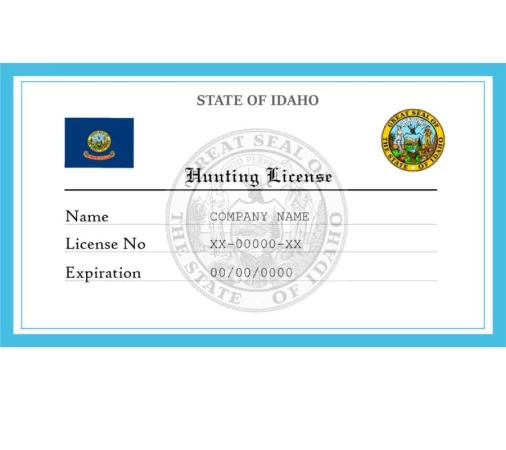Since the 1960s, the world economy has been transitioning to a digital economy. The major way that earlier digital technologies were employed to enhance corporate operations was by producing the same outputs more quickly and securely. Today, Blockchain technology has the potential to revolutionise businesses.
Cryptocurrency, a digital asset, has grown by leaps and bounds over the past 20 years. The evolution from a critique of existence to an economic motivation for the developing and advanced countries of the world is remarkable.
Blockchain attempts to advance data security and transparency by breaking down encrypted information to be mutual between (P2P) organizations. Due to its emphasis on security and trust, there is a growing interest in the application of blockchain in various business areas.
The idea of blockchain decentralization gives way to the new idea of a token economy where the revenue of local media can be distributed among large-scale content creators and users of value-creating services. Let’s see how does blockchain technology revolutionise businesses.
1. Crowdfunding
Crowdfunding is an approach to raising money for projects and companies. It allows fundraisers to raise funds from a huge number of people through various internet platforms.
With the development of cryptocurrencies, crowdfunding has become a popular fundraising tool. The average financial investor wonders whether they should invest their resources in new ideas and items. But they are afraid of losing money.
However, as monetary standards improved, it became possible to make smaller rather than large investments. ICOs for startups are also very popular. Digital currencies are emerging as a popular way of organising capital.
2. Finance Technology
Blockchain technology is mostly decentralized, meaning no one can control it. There is no way to fix it. Using distributed ledger technology, every transaction is recorded by a central point that is not connected to anything, be it a mobile phone, a laptop or a large server.
Technology like blockchain provides data privacy between different layers of software and a reason to share data. Keeping confidential and private information can enhance trust and transparency. This essentially democratises money management and helps prevent fraud.
3. E-commerce
Blockchain technology revolutionises businesses by making it simple for the e-commerce industry to handle inventories, process payments, display products accurately, and do other crucial tasks. As a result, businesses will save money by not having to hire IT support workers or maintain the frameworks that enable these activities.
Retailers with the use of blockchain technology can ensure that buyers’ data is free of theft or misuse. To prevent it from being stolen, customers’ data could be guarded by the blockchain’s integrity-restraining technology. As of now, there is no legal authority to turn all transaction data into a theft-proof ledger of all transactions.
4. Digital Marketing
Every firm needs marketing and advertising to succeed. Content marketing is absolutely necessary if you want to improve your reputation and expand your clientele. You may get free commercials by using digital money. Giving out free cryptocurrency to potential clients is one way to do this.
This will help you expand your business. It is also a smart idea to educate them about the simplicity of working with these coins as part of your welcome package.
All transactions may be verified and documented using blockchain. In today’s digital environment, customers are looking for transparency and data protection, which marketers may take advantage of. A marketing tool like this is ideal since it allows businesses to track the movement of data and ensure its accuracy.
5. Blockchain Technology Revolutionises Business in Legal Aspects
Staying competitive in the profession requires a high level of technological literacy. Blockchain may be the entry point to vast volumes of data, which might improve legal firms’ capacity to identify concrete evidence or inconsistencies in the case.
When certain conditions are met, smart contracts can enable automatic asset transfers. Judges, attorneys, and clients would save a lot of time if disputes could be resolved directly and efficiently.
Closing Notes on Blockchain Technology revolutionising businesses
Businesses that embrace innovation will be able to cut costs and establish a name for themselves in the brand-new, reliable digital world. The blockchain will make business and governmental operations safer, quicker, more efficient, and scalable when used in conjunction with smart contracts and digital currency.
All record-keeping procedures, including how transactions are originated, processed, approved, recorded, and reported, might be impacted by blockchain technology. And as more and more small companies enter the market, aided by digital technology, the economy will continue on its journey towards decentralisation.
FAQs On Blockchain Technology Revolutionise Businesses
What benefits does blockchain technology bring to businesses?
With blockchain cryptography, the guardian of trust is no longer a third party. Blockchain can help businesses or people trade assets more efficiently by eliminating middlemen and their associated expenses.
What changes does Blockchain bring to Traditional Business methods?
Blockchain offers advantages like decentralisation, security, and immutability in addition to open-source traceable storage. Because of this, current technology is being used for more than only cryptocurrency, enabling smooth online commercial transactions and communication.
When it comes to blockchain models, how does a business apply them?
A blockchain business model improves a user’s capacity to engage with the data through a wide-ranging digital marketplace, allowing them to buy products, services, and content from a third party.
As we can see, here we have all the current possibilities of how can blockchain technology revolutionise businesses. Let’s keep the applications of blockchain technology for another blog.


